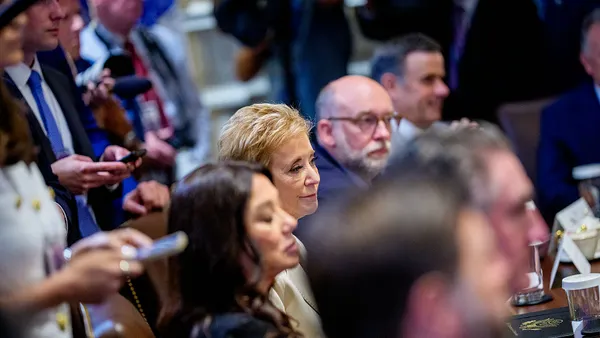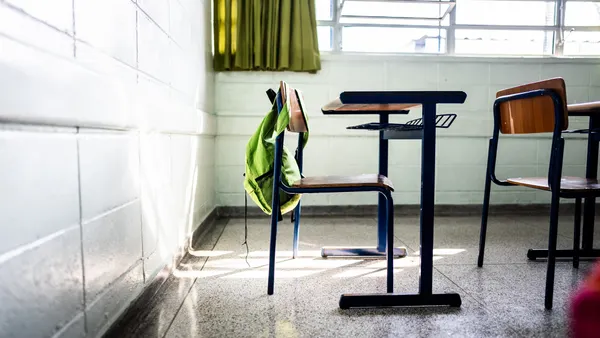LAS VEGAS — From the troubled Free Application for Federal Student Aid rollout to the resource-strapped Office for Civil Rights, U.S. Education Secretary Miguel Cardona covered a range of topics during a fireside chat at the Education Writers Association’s National Seminar.
Joined by Erica Green, a White House correspondent for the New York Times, Cardona acknowledged the U.S. Department of Education is “acutely aware” of the obstacles created for families by the chaotic FAFSA launch this year. But he also remained optimistic that the system for high schoolers to apply for college financial aid will improve in the years to come.
The Education Department has received 10.4 million FAFSA submissions, which is still 11% lower than the previous year, Cardona said.
When Green asked the education secretary if the department’s student loan debt forgiveness initiative took more priority over the FAFSA rollout, he said, “The idea of ‘We took resources away from this [FAFSA] to do that’ is false.”
“There’s a lot of work that we are doing to fix a broken system. Improving FAFSA is a part of that,” Cardona added.
Moving forward, Cardona said he expects that it will be less common nationwide to accept that only about half of FAFSA application filers actually enroll in college, and hopes that a rate of at least 90% college attendance among FAFSA completers will be normalized.
Prepared for an uptick in civil rights cases?
With an influx of students feeling excluded and being targeted at their schools and college campuses, Cardona said he also expects to see an increase in civil rights cases and that the Office for Civil Rights is prepared to handle that. However, earlier in May, Cardona stressed how overwhelmed with cases and understaffed the office was during a hearing held by the House Committee on Education and the Workforce.
The department is still pushing for additional funding for investigators who oversee these cases, Cardona echoed on Friday.
There are currently 60 fewer OCR investigators now than in 2009, Cardona said. Meanwhile the department has received three times as many requests for investigations.
In 2023, the Education Department saw a record-breaking number of complaints against K-12 and higher education institutions — reaching 19,201. That high volume has continued into 2024.
Typically, some OCR cases will take over a year to resolve, and it’s a priority to address the length of these investigation timelines, Cardona said.
Even so, Cardona said, OCR is being proactive by providing accessible materials and guidance resources for K-12 and university leaders.
“We’re not waiting for incidents to happen to address it,” he said.
Asked when the department’s Title IX rule on transgender students’ participation on athletic teams would be released, Cardona did not give a specific deadline. That proposed rule received over 150,000 public comments, he noted.
“We’re working aggressively on that,” Cardona said. “We want to move quickly on that, but there’s no update today on that, when it’s going to be released."
The broader Title IX update in April that enshrined regulatory protections for LGBTQI+ students and employees was released before the transgender student athlete rule. Cardona denied that the upcoming presidential election was the reason for the delayed Title IX athletic rule release.
“It would have been great to put them together, but the reality is we would have had to delay the other one to get through this one,” Cardona said.













